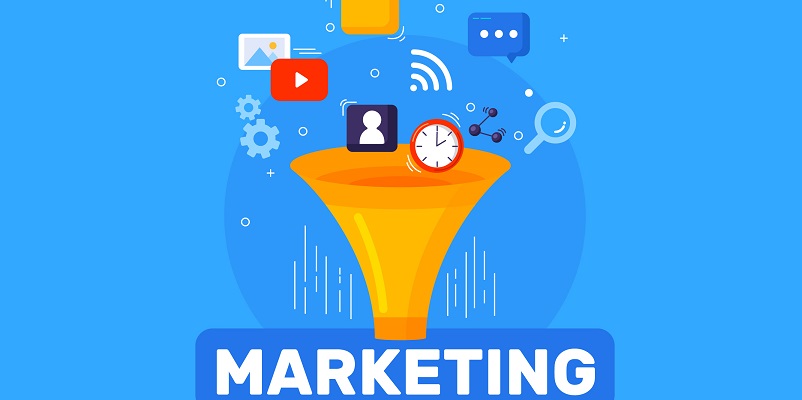In today’s competitive landscape, understanding the buyer’s journey is crucial for any marketer. A marketing funnel provides a visual representation of this journey, guiding businesses from initial awareness to the ultimate goal of a purchase. In this comprehensive guide, we will delve into the various stages of the marketing funnel, exploring strategies to optimize each step and drive sales and business growth.
The Funnel Shape
The funnel shape is a powerful visual representation that illustrates the consumer journey from awareness to purchase. It captures the gradual narrowing down of potential customers as they progress through each stage. By visually mapping the path from broad awareness to conversion, the funnel helps marketers design targeted strategies to guide prospects more efficiently.
The Awareness Stage
The awareness stage marks the beginning of the consumer journey and is a critical stage in the marketing funnel. At this point, businesses aim to capture the attention of potential customers and make them aware of their brand, product, or service. Strategies like content marketing, social media advertising, and search engine optimization play a crucial role in creating brand awareness.
The Consideration Stage
The consideration stage is where prospects evaluate available options after becoming aware of a product or service. To foster decision-making in this stage, marketers should provide valuable resources that help prospects gain a comprehensive understanding of the offering. This can include guides, webinars, reviews, white papers, case studies, comparison charts, and much more. Converting prospects to buyers is a major objective of the consideration stage.
The Conversion Stage
The conversion stage is the final step in the buyer’s journey, where the user makes the decision to purchase the product or service. To achieve conversion, marketers must have a deep understanding of the target audience, their needs, pain points, and motivations. By aligning messaging, offers, and benefits with specific buyer personas, marketers can drive higher conversion rates.
Understanding the Target Audience
A successful marketing funnel depends on understanding the target audience. By gaining insights into their needs, pain points, and aspirations, marketers can create personalized experiences that resonate with potential customers. Through market research, surveys, and customer feedback, marketers can refine their buyer personas, ensuring effective targeting at every stage of the funnel.
Enhancing the Purchase Process
During the conversion stage, it is essential to make the purchase process as seamless as possible. A cumbersome checkout experience can lead to drop-offs and lost sales. Marketers should prioritize optimizing the purchase journey by streamlining the checkout process, offering flexible payment options, and ensuring secure transactions. A frictionless experience can significantly increase conversion rates.
Post-Purchase Advocacy
One often overlooked area of the marketing funnel is post-purchase advocacy. Satisfied customers can be powerful brand advocates, influencing others to try your products or services. By providing exceptional customer support, encouraging reviews and testimonials, and implementing loyalty programs, businesses can leverage their existing customers to bring in new ones, maximizing their marketing efforts.
Customer Retention
While attracting new customers is vital, customer retention is equally crucial for long-term business success. A loyal customer base ensures sustained revenue and reduces the cost of continuous acquisition efforts. Strategies like personalized communication, proactive customer support, and exclusive offers can help businesses nurture existing customers, encouraging repeat purchases and brand loyalty.
In conclusion, a marketing funnel is an invaluable tool for businesses aiming to drive sales and grow their brand. By understanding the various stages of the funnel and their significance, marketers can design targeted strategies to guide potential customers from awareness to purchase. Moreover, prioritizing customer satisfaction and retention is crucial for long-term success, while also fueling the potential for post-purchase advocacy. Embracing the marketing funnel and optimizing each stage will undoubtedly lead to increased sales and overall business growth.

